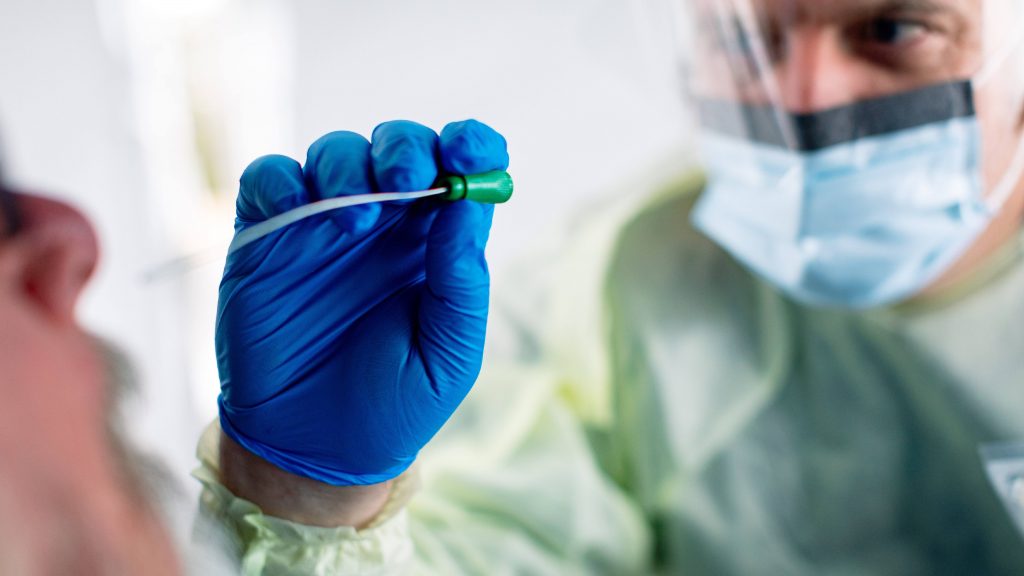
The list of testing options for COVID-19 keeps growing, and the different types of tests are not always explained. Tests range from ones that use samples sent into testing labs to ones that could be performed at a health care provider's office.
"Knowing the differences between tests allows you to make the best decision for your specific situation," says Matthew Binnicker, Ph.D., director of Mayo Clinic's Virology Laboratory. "Each test has its own purpose as well as pros and cons during the pandemic."
Testing terminology can be confusing, so Dr. Binnicker provides a synopsis of the different terms and how they are used. He defines these terms for diagnostic tests that determine if you have COVID-19:
Polymerase chain reaction (swab) test
If you're experiencing signs and symptoms of COVID-19, such as fevers, chills, body aches and trouble breathing, your health care provider may recommend this test. It detects SARS-CoV-2, the virus responsible for COVID-19. If you test positive for COVID-19 from the swab test, you will be asked to self-quarantine stop the spread of infection.
Polymerase chain reaction (saliva) test
Similar to swab tests, saliva is a potential specimen that can be collected for polymerase chain reaction testing. Saliva is typically easier ― and more comfortable ― to collect from a patient compared to a nasopharyngeal swab. However, saliva specimens still need to be submitted to a testing lab, as they are not yet an at-home test. Also, some data have shown that testing of saliva may have lower sensitivity, compared to nasal swabs.
Antigen test
Your health care provider may recommend this test if you are experiencing COVID-19 symptoms or fit the recommended guidelines set by your state, local or employer guidelines. The test, which is performed using a nasal swab, is easier to perform and can be completed by a nurse, advanced-practice provider or physician. Antigen tests for respiratory infections, such as influenza, have historically been less sensitive than polymerase chain reaction, so false negative results are a concern.
Dr. Binnicker goes on to discuss blood tests that determine if you had COVID-19. A blood test for antibodies is used to determine how many people in a population have been infected with COVID-19. This test identifies whether you had COVID-19 and have developed some degree of immunity against the virus that could prevent reinfection.
With Labor Day approaching and schools starting, understanding how testing works and making sure to take preventive measures to protect yourself from COVID-19 are more important than ever for you and your community.
Preventive measures include:
- Wash your hands often.
- Get tested when you're sick.
- Maintain social distancing.
- Wear a mask.
- Stay home when you're able.
- Follow state, local and employer guidelines.
Information in this post was accurate at the time of its posting. Due to the fluid nature of the COVID-19 pandemic, scientific understanding, along with guidelines and recommendations, may have changed since the original publication date.
Check the CDC website for additional updates on COVID-19. For more information and all your COVID-19 coverage, go to the Mayo Clinic News Network and mayoclinic.org.







